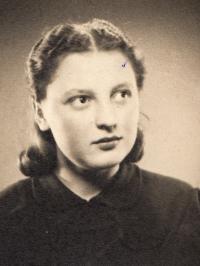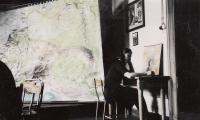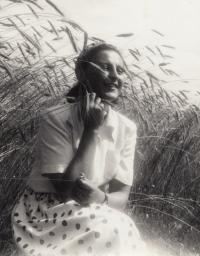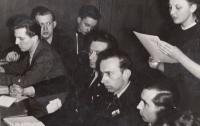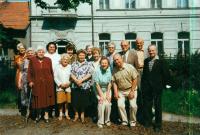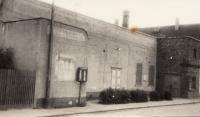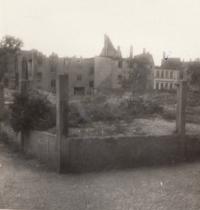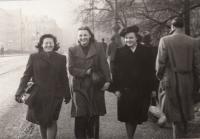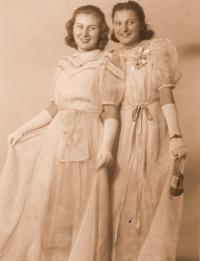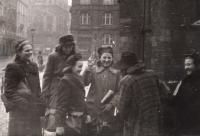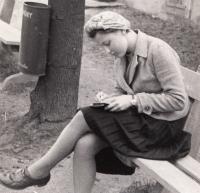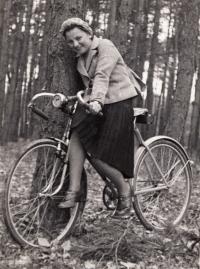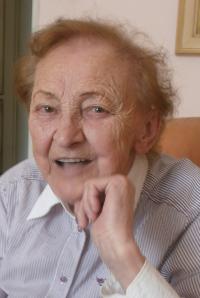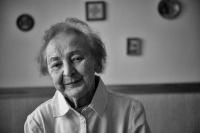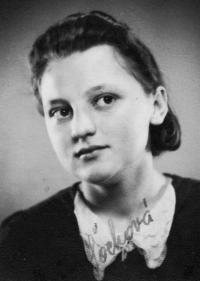I was born again during that air raid
Božena Šochová was born on 24 November 1924. At the time, her father worked at the last ironworks in Stará Huť near Dobříš. She spent her childhood in relative poverty, but even so, her parents managed to fund her studies at the Aetheneum, a grammar school on Bethlehem Square in Prague. The year 1943 was fateful for her, as Božena was assigned to forced labour after her graduation - first at a large farm in Ostředek near Benešov and then in Markleeberg near Leipzig (Germany), where she survived a devastating Allied bombing raid and the collapse of the building she was in - she and four hundred other people were saved by their co-workers - young Czech forced labourers. After another six months, Božena Šochová escaped from forced labour and returned to the Protectorate. She worked at the Junkers factory in Loděnice near Beroun until the end of the war. After the liberation she was very active in the newly established Czechoslovak Youth Union - she participated in harvest and work trips to the border regions and began working part-time at a radio station. In 1947 she became director of the Vycpálek Dance Troupe, which she took on a tour of the USSR in 1950. Her experience with the troupe served as the basis for Vladimír Vlček and Pavel Kohout’s film Zítra se bude tančit všude (Everyone Will Dance Tomorrow), one of the first full-colour propaganda films about young people in the first half of the 1950s. Božena began slowly waking from her dreams of just socialism during the 1950s, especially after the 20th Congress of the Communist Party of the Soviet Union and the revelation of Stalin’s crimes. Although she underwent a journalism course at the so-called Vokovice Sorbonne in 1968, she did not take up the profession, and due to her refusal to accept the Soviet occupation of Czechoslovakia, she was expelled from the Communist Party. In the 1970s she worked at the music publisher Supraphon, where she was in charge of the Gramophone Club. She withstood all attempts to fire her for political reasons, but her children were banned from studying. Her daughter trained as a hairdresser, and her son could only study composition and music direction after the fall of the Communist regime. For many years now, Božena Šochová has co-organised meetings for people who survived forced labour in Leipzig, and she feels that her war-time experience is something unshareable, and yet unique from the perspective of human relationships and solidarity between those who were affected.

